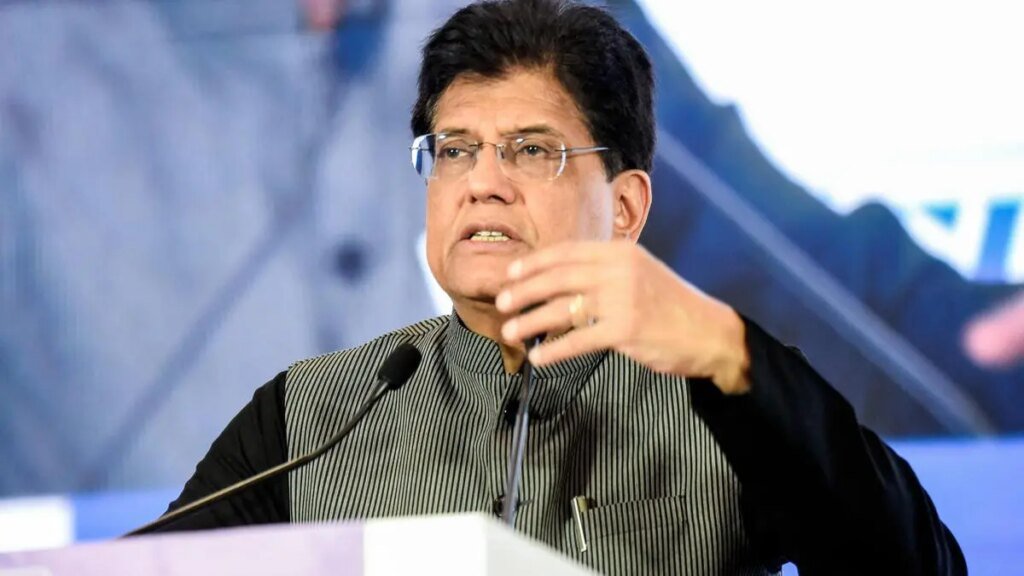Trump’s ‘wage-weighted’ H-1B visa plan: Nasscom issues big warning – calls proposed move ‘legally questionable, economically flawed’
H-1B visa overhaul: Donald Trump administration’s proposed move to replace the lottery-based system for H-1B visas with a ‘wage-weighted’ system will be disruptive, Nasscom has warned. Nasscom, the IT industry body, has sharply criticised the US administration’s proposal, stating it is legally questionable. It has also called the move economically flawed, and operationally disruptive! The proposed change in H-1B visa lottery system was announced soon after the Trump administration hiked the fee for this category of visas to $100,000 for new applicants.During consultations with the Department of Homeland Security (DHS), Nasscom highlighted concerns about geographical and sector-based disparities in the new system proposed for H-1B visa issuance. The organisation pointed out that a Level 2 wage earner in New York could potentially rank above a Level 4 wage earner in Iowa! The DHS has already received 11,000 comments regarding the proposal.
What’s the new H-1B visa system proposed by the Trump admin?
The Trump government plans to eliminate the existing H-1B lottery programme, which has enabled over 750,000 qualified immigrants to work in the United States, as part of a comprehensive initiative to combat what it says is H-1B visa misuse. The revised system aims to prioritise skilled professionals with higher salaries and more extensive experience.
- The US Department of Homeland Security plans to replace the existing random H-1B registration lottery with a weighted selection system. This new approach seeks to allocate visas to overseas workers based on their expertise and salary levels.
- Under the proposed framework, registrations would be categorised based on the applicant’s corresponding wage bracket.
- The new selection process would sort individual beneficiary registrations within the pool according to their designated OEWS (Occupational Employment and Wage Statistics) wage categories.
- Each application would receive a classification from Level I to IV, with higher tiers receiving greater selection opportunities. Specifically, Level IV registrations would secure four entries in the selection pool, whilst Level I would receive a single entry.
- Although beneficiaries may receive multiple entries in the selection pool, each individual would be counted singularly towards the numerical caps.
According to DHS projections quoted in an ET report, the suggested regulation would generate yearly benefits totalling approximately $502 million in FY26, $1.04 billion in FY27, $1.51 billion in FY28, and $2.01 billion annually from FY29-35.
New H-1B visa system: Why are trade bodies against it?
Rajesh Nambiar, president of Nasscom, in his written submission to the DHS on October 30, pointed out that American companies have built their recruitment cycles, budgets and project schedules around the current random lottery system for nearly 20 years. An abrupt transition to a wage-based model would severely impact these established practices.“For nearly two decades, US employers have structured their hiring cycles, budgeting, and project timelines around the existing random lottery framework. A sudden shift to a wage-weighted model would upend these long-standing expectations,” he has said according to the ET report.Nambiar explained that organisations typically schedule their recruitment activities several months ahead, synchronising with client requirements, academic schedules and product launches. He noted that implementing probability-based selection using variable wage formulae would introduce additional regulatory complexities.Nasscom also cautioned about potential manipulation of the system, suggesting that companies might artificially inflate salaries to secure additional lottery entries.The US Chamber of Commerce (USCC), America’s premier business organisation, has also contested the assumption that increased wages and tax revenue directly translate to economic advantages for the country. The organisation warned that companies might relocate jobs overseas if they cannot access required expertise.USCC’s vice president for immigration policy, Patrick Shen, emphasised the significance of employees across all positions, stating: “The proposed regulation, by its very design, would diminish significantly the chance for early-career or midlevel professionals to obtain an H-1B visa.”Analysis of the submissions revealed that small business proprietors constitute 76% of H-1B petitioners, who could face substantial cost increases.The trade association has called for complete removal of the regulation, arguing that such modifications require legislative approval through Congress rather than administrative decisions.The ITI Council, representing technology firms from the United States, pointed out that despite larger companies offering 50% higher salaries, they receive reduced lottery selections as wage measurements fail to reflect complete remuneration packages.The council’s submission, signed by Julia Massimino, executive vice president of government affairs, highlighted that the current framework overlooks equity-based compensation, including restricted stock units and other share offerings, leading to inaccurate assessments of skilled workforce costs.According to the ET report, Nasscom clarified that whilst the system might appear comparable to immigration frameworks utilised in Canada, Australia, or the UK, these systems operate distinctly.“They operate under comprehensive legislative mandates and evaluate multiple attributes such as education, work experience, language proficiency, and adaptability—rather than relying on a single wage metric,” it reportedly said.Member companies of Nasscom provide employment to over 1.6 million skilled professionals across the United States, generating $198 billion towards the US GDP—surpassing the economic contribution of more than 20 individual states. “Notably, more than two-thirds of these jobs are located outside Silicon Valley and New York, fostering inclusive growth in regions such as Texas, North Carolina, Ohio, and Illinois,” it said.Nasscom has put forward a suggestion to postpone the lottery, originally planned for March 2027, until FY28.



